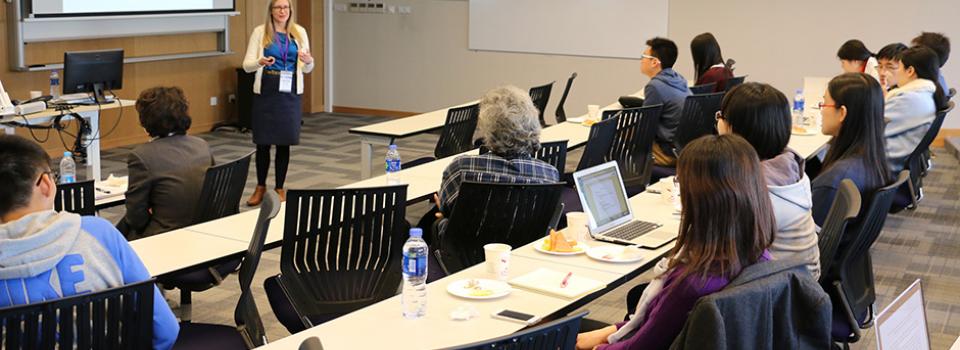Apr 01 2015
Published by
NYU Shanghai

The NYU-ECNU Institute for Social Development at NYU Shanghai hosted its Social Development Seminar of the Spring 2015 Semester in March, 2015, both in Pudong and Zhongbei Campus. Prominent researcher from the University of Washington, Dr. Melissa Martinson, shared her expertise on the "Socioeconomic Disparities in Health at the Starting Gate: Australia, Canada, the United Kingdom, and the United States Compared." Her talk attracted faculty members and students from both the ECNU and NYU Shanghai.
As a well-regarded scholar, Dr. Melissa Martinson’s research focuses on inequities in health and wellbeing throughout the life span, both in the United States and internationally. In particular, her work examines the wide health divide between the United States and other wealthy, developed nations. Within that comparative context, Dr. Martinson's research aims to understand and alleviate health disparities by race and ethnicity, socioeconomic status and immigrant status.
Research has shown that low birthweight is an important marker for health over the life course. Although there is clear evidence of a socioeconomic gradient in this marker of health at the “starting gate”, yet little is known about how that gradient compares to other countries. Presented to a full house of audience, Dr. Martinson introduced her research, which used nationally representative data from four countries - Australia, Canada, the United Kingdom, and the United States - to compare socioeconomic gradients in low birth weight across countries that share many cultural features but differ in terms of public support and healthcare systems. Empirical results demonstrate a general pattern of socioeconomic inequality in low birthweight in all four countries, but magnitude of socioeconomic gradient varies by country. The seminar created a vibrant discussion about the hypothesis, methodology, and outcome of the research, which provided an opportunity for audience to have better knowledge and understanding of the comparability of socioeconomic inequalities in health across well-developed countries. The audience has also discussed the implications of health disparities due to socioeconomic status to the context of China and how future research may build upon and extend beyond Dr. Martinson's work to further our understanding of health disparities in China.
(Publish on: 04/01/15)


